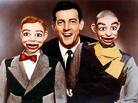“Oh, bother!”
July 22, 2011
I was shocked when a colleague told me the other day that she had never read the Winnie-the-Pooh books, and I suppose I should have hidden my surprise better than I did. That’s a conceit of mine – that everyone’s life experiences should be the same as my own. Then again, we’re talking about Winnie-the-Pooh, for heaven’s sake.
This conversation was occasioned by the fact that Pat and I went on Sunday to see the new Disney movie, Winnie-the-Pooh, with our daughter and our two grandsons. The film is well done with hand-drawn images and a story line that are true to the spirit of both A.A.Milne, who wrote the books, and Ernest Shepard, who illustrated them.
Milne and Shepard, of course, provided text and pictures, but they did not provide the voices of the characters. That was left to the Disney studio, where some genius cast Sterling Holloway in the title role of Winnie-the-Pooh and the Honey Tree in 1966. Holloway played the part in two more Disney short features, and his high-pitched, plaintive voice became the voice of Pooh for a couple of generations of kids and adults who, by the mercy of God, have not fully grown up.
Holloway retired in the 1970s, and the Disney casting office had another epiphany, choosing voice actor Jim Cummings – who can be heard in about a hundred films – to speak for Pooh, as it were. It was a tough assignment for an actor who, I’m sure, wanted to do his work without a ghost looking over his shoulder but also wanted to keep the character authentic in the minds of the audience. No problem. Cummings’ performance is distinctive, but it has the ring of a bear, and a hungry one at that, of very little brain.
Cummings knows something about following a tough act. He also took over the role of Tigger in the Pooh films after the retirement of Paul Winchell, who entertained audiences in the 50s and 60s with a ventriloquist act that featured the mannequin Jerry Mahoney, and who was also the first person to design and build an artificial heart.
I can’t say I missed Holloway while we were watching Winnie-the-Pooh, but I miss him in general. I first became aware of him when he appeared in the recurring role of eccentric but gentle Waldo Binney, a neighbor of the title family on the series The Life of Riley, which starred William Bendix as Chester A. Riley.
Holloway was unique, sui generis, in the quirkiness of his appearance, his demeanor, and his voice, so it was always a pleasure to run across him in movies or TV shows – the latter including The Amazing Adventures of Superman. He appeared in about 150 screen and TV properties over all. In the 1970s, he also did voiceover commercials for Purina Puppy Chow dog food, and sang what was then a familiar jingle: “Puppy Chow / for a full year / till he’s fully grown.”
As often happens with performers who have long careers, two of Holloway’s landmark achievements are largely forgotten – namely the fact that he introduced two songs that became a permanent part of the American musical repertoire. This occurred when he was appearing on Broadway in the 1920s and the songs were “(I’ll take) Manhattan” and “Mountain Greenery,” both composed by Richard Rodgers and Lorenz Hart.
Holloway, who never married because – he said – he liked his life the way it was, died in 1992 at the age of 87.
Click on THIS LINK to see and hear Sterling Holloway singing “A Perfect Day,” a song written in 1909 by Carrie Jacobs Bond. Holloway’s touching rendition occurred in the 1940 film “Remember the Night.”






